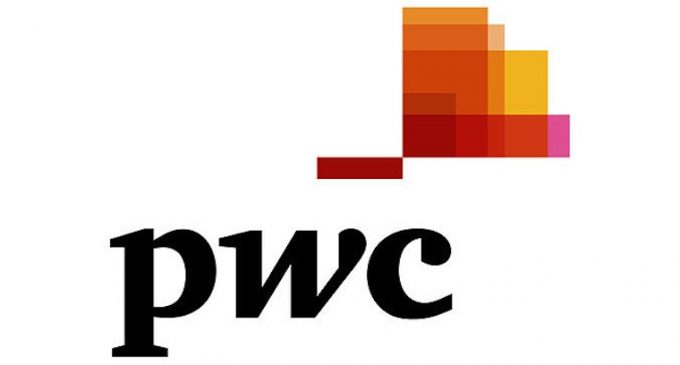Most CFOs Confident About Economic Prospects – PwC

Eight out of ten CFOs were confident about prospects for the economy in the year ahead, according to a survey executed in Summer 2016 by PwC. The survey report, released on Wednesday, shows that Irish financial leaders expressed concern about maintaining margins (69%), controlling costs, especially labour costs (44%) and the lack of skilled employees (35%). Over a quarter are also concerned about geopolitical uncertainties (28%) and exchange rate volatility (26%), however it is unclear how many respondents were questioned before the Brexit referendum.
The majority of CFOs also expected revenue (76%) and profit (67%) growth in their businesses, though this is slightly down on prior years.
The research reveals that Irish CFOs are actively repositioning their businesses for growth. Two-thirds (65%) are planning to launch new products as a strategic growth strategy. Over a third (38%) are planning to enter new markets – with the greatest barrier to expansion cited as identifying the right markets. A third (33%) are planning to increase capacity. Nearly a quarter (23%) are planning a merger or acquisition. A similar proportion (23%) are planning price increases while promotional incentives also feature strongly.
Significant upheaval
Much greater change is on the way compared to that expected two years ago, highlighting that it will be anything but business as usual in the future. For example, nearly half expect changes in customer growth and retention strategies (46%) which has shot up from 33% in 2014. Over a third (38%) expect changes in R&D innovation capacity, also up significantly from two years ago. Other key areas for change include M&As, organisational structure and talent strategies.
Restructuring activities have fallen significantly since 2013 with a third (35%) not planning any restructuring at all, opting for a greater focus on customer retention and expansion.
“The survey shows that Irish finance leaders are facing a world of unprecedented change but they are ready to tackle what is in store,” PwC Ireland Consulting Partner Garrett Cronin said. “There is no doubt that the impact of Brexit and the change of political leader in the US may have complicated matters and has certainly created uncertainty for the medium term. At the same time, they are focused on growth and innovation. While finance functions are becoming more strategic, the survey suggests that there is room for improvement in how they use technology, and particularly in leveraging the full benefits of data analytics.”
Finance becoming more strategic but better use of technology needed
Six out of ten finance leaders confirmed that their finance function plays a strategic role in the business, up from one in two in 2014. The survey highlights that Ireland’s finance functions are partnering with the business in a more strategic way and expect to spend more time on enterprise wide strategic initiatives in the year ahead. However, only a third (34%) scored their organisation’s technology as excellent or very good when it comes to making business insight effective and efficient.
Cybercrime, uncertain economic growth and exchange rate risks are the top concerns keeping CFOs awake at night, according to the survey. However, finance leaders are ready to tackle the challenges including focusing on fewer and more select initiatives including their approach to risk management.
“A cyber crisis can be one of the most challenging and complicated issues that any organisation will face,” PwC Cyber leader Pat Moran said. “Finance leaders have a role to play in ensuring that this issue is dealt with at Boardroom level and that the organisation has appropriate strategies around investigation and communication, as well as forensic and analytical capabilities. In today’s risk landscape, a company’s degree of readiness to handle a cyber crisis can be a marker of competitive advantage and ultimately ensure its survival.”
Digital Technologies
According to the survey, less than half (46%) of Irish CFOs currently use data mining and only a third (34%) use predictive modelling as tools to leverage data analytics. Just 42% plan to change how they leverage technology and digital investments and only a third expect to change how they use data analytics. At the same time nearly two-thirds (60%) believe that their organisations need to have a clear vision for digital technologies and how it can help them achieve competitive advantage. But CFOs do not see themselves as leading the charge. Less than one in two CFOs see themselves as championing the digital agenda and just over a quarter (28%) see the need for specific hiring and training strategies to integrate digital throughout the business as a priority.
Garrett Cronin said: “While the survey suggests that CFOs do not believe they have a very important role to play in championing the use of digital technologies, this couldn’t be further from the truth. Our Global research indicates CFOs have a significant role to play in ensuring that their organisations are investing in the right technologies and both measuring and tracking the resulting benefits. There is clearly an opportunity for a number of Ireland’s finance leaders to take a greater leadership role in this area and become the Chief Performance Officers for their organisation over the next number of years.”
Other Findings
The survey also found that 65% of CFOs say that they expect costs to increase, and has shot up from just over a third (36%) four years ago and that fewer finance leaders (41%) plan to increase capital investment compared to two years ago.
Nearly half (48%) plan to hire more people in the year ahead, slightly down compared to two years ago (50%). An overwhelming majority (92%) expect to increase basic pay in the year ahead, up from 76% in 2014. The single driver for success of the finance function is the quality of the people (66%).
Garrett Cronin concluded: “Just one in five finance leaders indicated that they plan to make changes to their supply chain. With a hard Brexit on the cards and ongoing volatility in Sterling, this is an area to be kept under close scrutiny and, in particular, whether a hedging strategy is appropriate.”




















